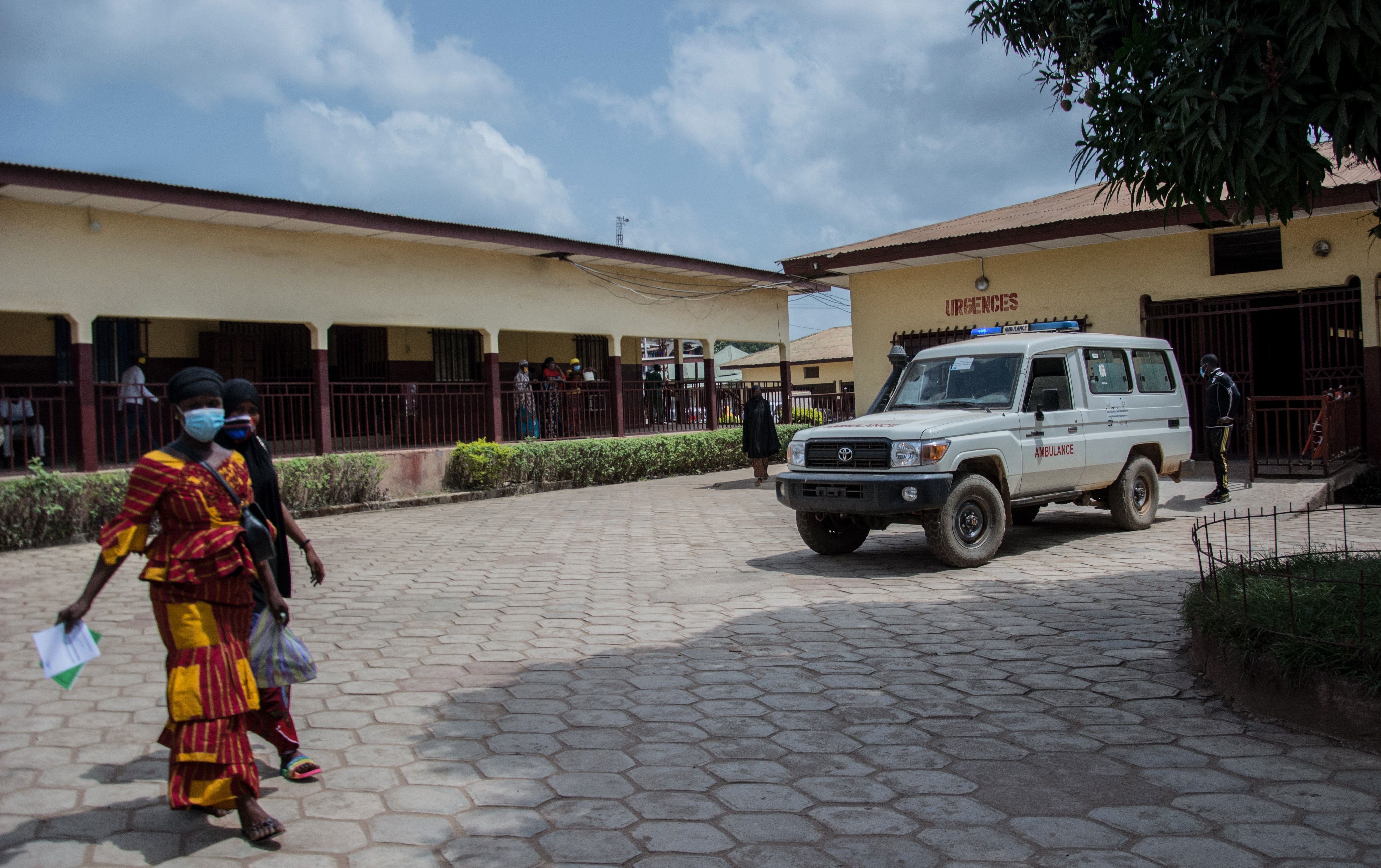Deadly Marburg virus case reported for first time in west Africa
Contact tracing efforts are currently underway to contain any potential spread of the disease

Your support helps us to tell the story
From reproductive rights to climate change to Big Tech, The Independent is on the ground when the story is developing. Whether it's investigating the financials of Elon Musk's pro-Trump PAC or producing our latest documentary, 'The A Word', which shines a light on the American women fighting for reproductive rights, we know how important it is to parse out the facts from the messaging.
At such a critical moment in US history, we need reporters on the ground. Your donation allows us to keep sending journalists to speak to both sides of the story.
The Independent is trusted by Americans across the entire political spectrum. And unlike many other quality news outlets, we choose not to lock Americans out of our reporting and analysis with paywalls. We believe quality journalism should be available to everyone, paid for by those who can afford it.
Your support makes all the difference.Health authorities have reported the first ever case of the highly infectious and deadly Marburg viral disease in Guinea, a country in west Africa.
The virus was detected less than two months after Guinea declared an end to the Ebola outbreak which began earlier this year, WHO Africa noted.
“We applaud the alertness and the quick investigative action by Guinea’s health workers. The potential for the Marburg virus to spread far and wide means we need to stop it in its tracks,” said Dr Matshidiso Moeti, World Health Organization (WHO) Regional Director for Africa.
Categorised in the same family as the Ebola virus, Marburg is also transmitted to people from fruit bats and spreads among humans through direct contact with the bodily fluids of infected people, surfaces and materials.
The illness begins abruptly and causes high fever and severe headache, with many patients developing severe haemorrhagic signs within seven days, WHO noted.
Studies have shown that death rates among those infected with the virus could vary from 24 to 88 per cent depending on the strain and case management.
While there are currently no vaccines available to prevent the deadly disease, or any approved antiviral treatments to treat the infection, WHO noted that supportive care – rehydration with oral or intravenous fluids – and treatment of specific symptoms, can improve survival.
“We are working with the health authorities to implement a swift response that builds on Guinea’s past experience and expertise in managing Ebola, which is transmitted in a similar way,” Moeti added in a statement.
The deadly virus was identified in samples taken from a now-deceased patient and tested by a field laboratory in the town of Gueckedou in Guinea as well as the country’s national haemorrhagic fever laboratory.
Results from these tests were also further confirmed by the Institut Pasteur in Senegal.
The patient, reportedly a 46-year-old father of five, developed symptoms on 25 July and had sought treatment at a local clinic in Gueckedou where a medical investigation team had been dispatched to probe his worsening symptoms.
Contact tracing efforts are currently underway to contain any potential spread of the disease with crucial emergency response provided by the Ebola control systems already in place in Guinea and in neighbouring countries.
Health authorities are also reportedly launching public education and community mobilisation to raise awareness since the disease is appearing for the first time in west Africa.
“An initial team of 10 WHO experts, including epidemiologists and socio-anthropologists is on the ground helping to investigate the case and supporting the national health authorities to swiftly step up emergency response, including risk assessment, disease surveillance, community mobilisation, testing, clinical care, infection prevention as well as logistical support,” WHO Africa noted.
While previous Marburg disease outbreaks and sporadic infections have been reported in Angola, the Democratic Republic of the Congo, Kenya, South Africa and Uganda, this is the first such case from the western part of the continent, according to WHO Africa.
Join our commenting forum
Join thought-provoking conversations, follow other Independent readers and see their replies
Comments